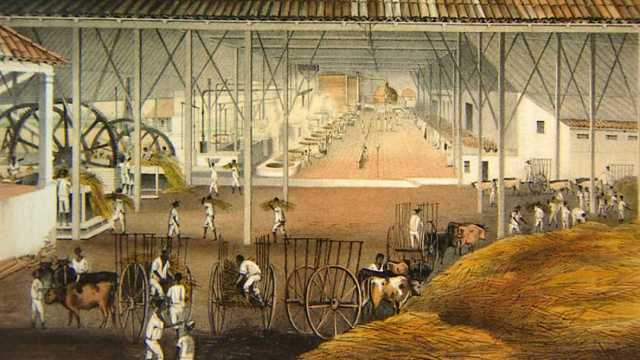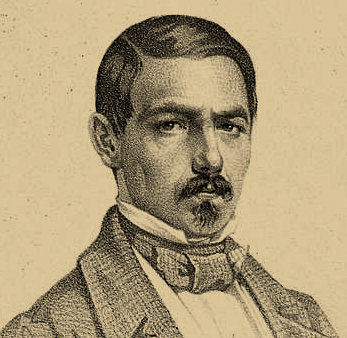As part of my research on the Galicia-New York connection, I’m currently reading about Galician emigration to America in a wider sense. As it is well known, a great number of Galicians relocated to Latin American countries, especially since the nineteenth century. In order to fully understand the role played by of New York in Galician culture, it is therefore necessary to place it within the wider phenomenon of mobility that led many of its citizens to cross the Atlantic Ocean.
There are a number of reasons that academics have argued to explain such migration. Poverty has been traditionally seen as the main one, sometimes presented as some sort of collective tragedy. More recently, historians such as Manuel Núñez Seixas have also brought the attention to other causes, for example individual or family “strategies” related to the existence of mobility networks oversees and even a “migratory tradition” in Galicia.
To my surprise, I’ve also come across another less known (and shocking) cause for the arrival of a high number of Galicians (around 17.000) in Cuba in 1854: the greed of a Galician politician and businessman called Urbano Feijóo de Sotomayor. I knew about the also despicable involvement of some Galicians in the human trafficking of African people in the nineteenth century. In this case, Urbano Feijóo tricked many of his fellow countrymen into becoming slaves for sugar plantations, seeking to bring cheap labour to overseas businesses. After the abolition of slave trade in Great Britain in 1807, this country also put pressure on other nations to stop this practice.

For landowners, such as Feijóo, used to exploit humans in their plantations, having to hire free black workers or to illegally buy slaves became too expensive. Feijóo’s solution was to convince the Cuban government of the benefits of bringing Galician workers to their country, arguing amongst other reasons that Galicians could be expected to work twice as hard than blacks. At the time, Cuba was also interested in re-colonising the island with white people, fearing a revolution similar to the one led by black slaves in their neighbour Saint Domingue, which led to the creation of Haiti. Feijóo took advantage of such concerns.
In Spain, he also claimed that his project would be beneficial for his home region. It must be taken into account that in 1853 Galicia was going through a period of famine and had also been affected by a cholera outbreak. Such misery, probably together with the lack of education of most Galician peasants, made it apparently easy for Feijóo and his agents to convince thousands to sign a contract in which they consented, for example, to receive physical punishment if they broke the agreed conditions, and to work for lower wages than any other workers.

Feijóo’s enterprise was a complete failure, as he was unable to find landowners who would take ‘his inmigrants’, and led 500 Galicians to die of starvation. Others were shackled and locked in confined spaces, and those who didn’t escape lived under inhumane conditions. The case was eventually brought to light and taken to the Spanish Parliament by another Galician, Ramón de la Sagra. The affected Galicians were freed from their contracts. However, Urbano Feijóo did not have to pay in any way for his wrongdoings and the scandal did not stop him from continuing his political career a decade later.
The whole story is told in much more detail in the documentary ‘Gallegos por esclavos’ [Galicians for Slaves] shown on RTVE (which is also the main source for this blog entry). It is really worth a watch. Another very interesting source is the website xenealoxia.org, whose initial findings were key to reveal how Urbano Feijóo enslaved thousands of Galician men.

Muy interesante tu explicacion, yo llevo tiempo averiguando por la historia de mi abuelo paterno, que emigro en 1902 a Cuba con toda la familia de el y de mi abuela y de mis tios nacidos. Lo unico que he podido encontrar es que nacio en 1879 en A.Coruna y que su mama se lllamaba Caridad Dominguez y al parecer su papa no lo reconocio y el tenia los apellidos: Dominguez Rodriguez de su mama. Por favor si me pudieras dar alguna orientacion de como averiguar algo al respecto te lo agradecere gracias
Hola Emma, muchas gracias por tu comentario. Por lo que me cuentas, parece que la mejor manera de conocer más acerca de su historia sería contactar con miembros de tu familia que lo conocieran en vida, o que tengan documentación, fotos, etc. que pueda ayudar a saber más sobre él, ¿pero supongo que esto ya lo has intentado? ¿Nació en A Coruña ciudad o provincia? Si no fuese en la ciudad, podrías intentar consultar los registros de emigrantes de su localidad, que normalmente están en los archivos municipales. No creo que encontrases mucha información que no conozcas ya, pero quizás podría ser útil. Espero que esto sea de ayuda. Un saludo